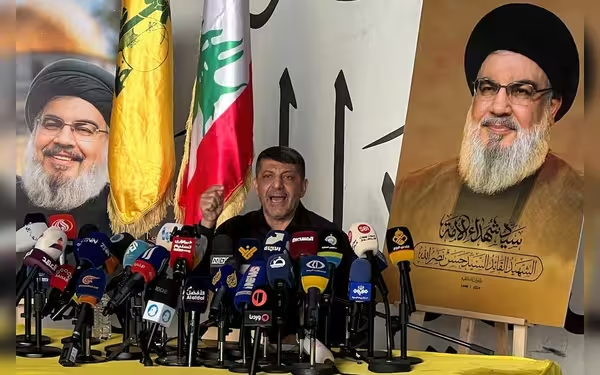Thursday, November 21, 2024 06:47 PM
Hezbollah Media Chief Killed in Israeli Airstrike on Beirut
- Hezbollah's media chief Mohammad Afif killed in airstrike.
- Retaliatory rocket fire from Hezbollah targets Israel.
- Escalation raises concerns over regional stability.
 Image Credits: tribune.com.pk
Image Credits: tribune.com.pkHezbollah's media chief Mohammad Afif was killed in an Israeli airstrike, escalating tensions in the Middle East and prompting retaliatory actions.
In a significant escalation of tensions in the Middle East, the head of Hezbollah's media office, Mohammad Afif, was killed in a rare Israeli airstrike on central Beirut. This incident marks a critical moment in the ongoing conflict between Israel and Hezbollah, a militant group based in Lebanon. The airstrike, which occurred on November 11, 2024, has sparked a wave of retaliatory actions, with Hezbollah launching rockets at Israeli targets in response.
The backdrop of this conflict is rooted in decades of animosity between Israel and Hezbollah, which has been involved in numerous confrontations since its formation in the early 1980s. The group, which is backed by Iran, has often positioned itself as a defender of Lebanon against Israeli aggression. The killing of a high-ranking official like Afif is not only a blow to Hezbollah's media operations but also a potential turning point in the ongoing hostilities.
Following the airstrike, Hezbollah's response was swift and aggressive. The group fired rockets at various Israeli positions, prompting further Israeli strikes in southern and eastern Lebanon, as well as in the southern suburbs of Beirut. This cycle of retaliation highlights the fragile nature of peace in the region and raises concerns about a broader conflict that could engulf neighboring countries.
As the situation unfolds, it is essential to consider the implications of these events. The death of Mohammad Afif could lead to increased tensions and a potential escalation of military actions between Hezbollah and Israel. The international community is closely monitoring the situation, as any significant escalation could have far-reaching consequences for regional stability.
The killing of Hezbollah's media chief in an Israeli strike is a stark reminder of the volatility in the Middle East. As both sides prepare for possible further confrontations, the hope for a peaceful resolution seems increasingly distant. Understanding the complexities of this conflict is crucial for anyone interested in the geopolitical landscape of the region, as the actions taken in the coming days could shape the future of Lebanon and its relations with Israel.













